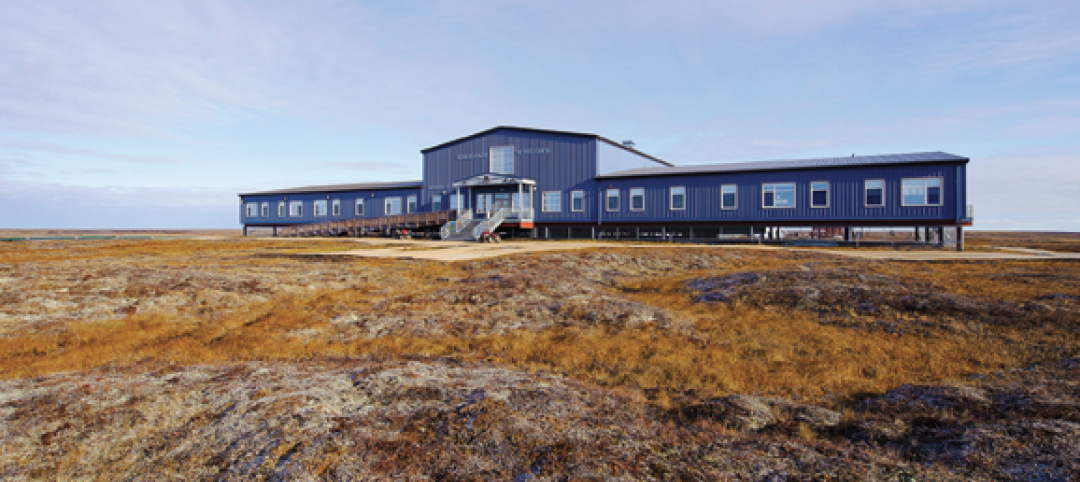After four years of development, the latest version of the Architect Registration Examination® (ARE®), ARE 5.0, launched on November 1, 2016. The updated exam incorporates new testing technologies and features six divisions that align with current practice and the progression of an architecture project. ARE 5.0 was developed with the help of practicing architects who volunteer their time and expertise, and reviewed by experts who ensure the exam is fair, reliable, and meets national testing standards.
Developed and administered by the National Council of Architectural Registration Boards (NCARB), the ARE assesses the knowledge and skills of all candidates seeking a license to practice architecture in the United States. NCARB periodically updates the exam to ensure it continues to reflect the demands of professional practice.
Aligning to Current Practice
To adapt to changes in the profession, ARE 5.0 content has been restructured into six divisions organized around architectural practice and the progression of a typical project. The new divisions also align with the experience areas of the Architectural Experience Program® (AXP®), helping candidates connect their practical experience to exam topics and making the licensure process smoother and easier to understand. ARE 5.0 test durations are substantially shorter than ARE 4.0—ranging from three and a half to five hours and reducing total seat time by eight hours.
In addition, ARE 5.0 features the latest graphic testing methods, replacing vignettes with two new question types: hot spots and drag-and-place. ARE 5.0 also includes case studies, which provide candidates with multiple pieces of information and require them to assess and solve the types of problems architects face on a daily basis.
Preparing Candidates for ARE 5.0
Candidates looking for insight into the new exam have access to several free study tools developed by NCARB. These include the ARE 5.0 Handbook, the ARE 5.0 Guidelines, the ARE 5.0 Community, the ARE 5.0 Demonstration Exam, and the ARE 5.0 Test Prep video series. In addition, as an incentive to take the new exam, the first 600 candidates to test on each division will receive a $100 gift card.
NCARB will continue to administer ARE 4.0 until June 30, 2018. This 20-month period of dual delivery will enable current candidates to finish the exam in a way that best suits their needs.
For more information about ARE 5.0 visit www.ncarb.org/ARE5.
Related Stories
| Jan 3, 2011
Chicago Architectural Foundation’s media expert takes all 85 tours in one year
Jennifer Lucente, the social media expert at the Chicago Architecture Foundation has completed her year of taking tours—taking all 85 tours in 2010. The challenge that began last January with a tour of the Board of Trade building has ended today with the architecture foundation’s newest tour: Razzle Dazzle – featuring the Loop theater district followed by a celebration at the Chicago Theatre.
| Dec 28, 2010
Project of the Week: Community college for next-gen Homeland Security personnel
The College of DuPage, Glen Ellyn, Ill., began work on the Homeland Security Education Center, which will prepare future emergency personnel to tackle terrorist attacks and disasters. The $25 million, 61,100-sf building’s centerpiece will be an immersive interior street lab for urban response simulations.
| Dec 20, 2010
Architect Adrian D. Smith on zero-energy cities, new technologies, and high density.
Adrian D. Smith, FAIA, RIBA, is co-founder (with Gordon Gill) of Adrian Smith + Gordon Gill Architecture, Chicago. Previously, he was a design partner in the Chicago office of Skidmore, Owings & Merrill (1980-2003) and a consulting design partner from 2004 to 2006. His landmark structures include the Jin Mao Tower (Shanghai), Rowes Wharf (Boston), and Burj Khalifa (Dubai, U.A.E.), the world’s tallest structure. He recently collaborated with Gordon Gill to design the world’s first net-zero-energy skyscraper, Pearl River Tower, now nearing completion in Guangzhou, China. This account is based on his recent remarks at the Illinois Institute of Technology.
| Dec 17, 2010
BIM Tools Enhance Project Value
The Building Team for a renovation project at Georgia Tech uses BIM and 3D design tools to solve a complex millwork problem.
| Dec 17, 2010
Historic Rhode Island hotel reborn with modern amenities
The iconic Ocean House resort in Watch Hill, R.I., had to be torn down in 2005 when systemic deficiencies made restoration unfeasible. Centerbrook Architects and Planners, Centerbrook, Conn., designed a new version of the hotel, working with preservation societies to save or recreate favorite elements of the original building, and incorporating them into the contemporary structure. The new resort has 49 guest rooms and 23 residences, plus banquet halls, a corporate boardroom, a private clubroom, a spa and fitness center, an indoor lap pool, a bar, and the obligatory international croquet court. Dimeo Construction, Providence, R.I., was the construction manager.
| Dec 17, 2010
Gemstone-inspired design earns India’s first LEED Gold for a hotel
The Park Hotel Hyderabad in Hyderabad, India, was designed by Skidmore, Owings & Merrill to combine inspirations from the region’s jewelry-making traditions with sustainable elements.
| Dec 17, 2010
Condominium and retail building offers luxury and elegance
The 58-story Austonian in Austin, Texas, is the tallest residential building in the western U.S. Benchmark Development, along with Ziegler Cooper Architects and Balfour Beatty (GC), created the 850,000-sf tower with 178 residences, retail space, a 6,000-sf fitness center, and a 10th-floor outdoor area with a 75-foot saltwater lap pool and spa, private cabanas, outdoor kitchens, and pet exercise and grooming areas.
| Dec 17, 2010
Sam Houston State arts programs expand into new performance center
Theater, music, and dance programs at Sam Houston State University have a new venue in the 101,945-sf, $38.5 million James and Nancy Gaertner Performing Arts Center. WHR Architects, Houston, designed the new center to connect two existing buildings at the Huntsville, Texas, campus.
| Dec 17, 2010
Alaskan village school gets a new home
Ayagina’ar Elitnaurvik, a new K-12 school serving the Lower Kuskikwim School District, is now open in Kongiganak, a remote Alaskan village of less than 400 residents. The 34,000-sf, 12-classroom facility replaces one that was threatened by river erosion.















